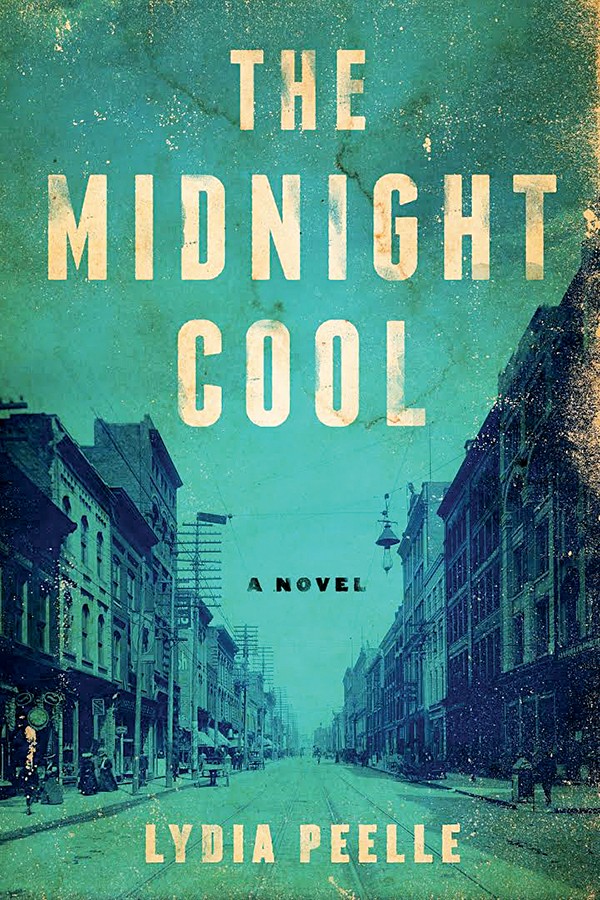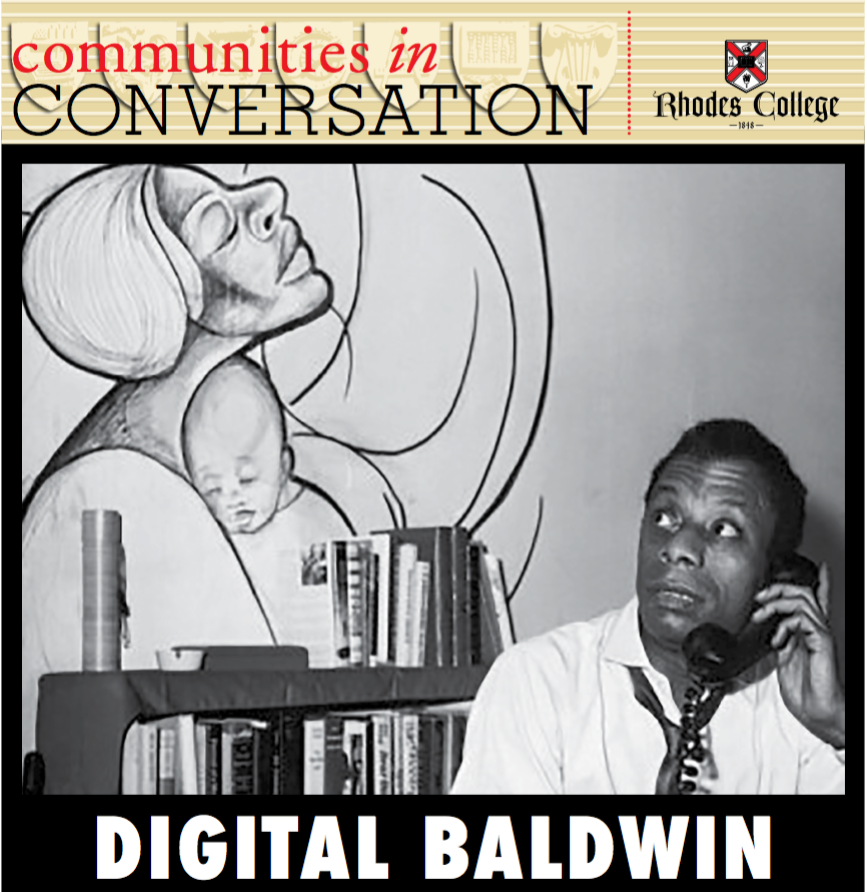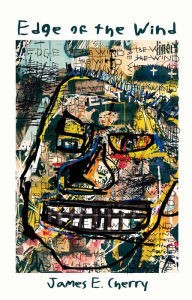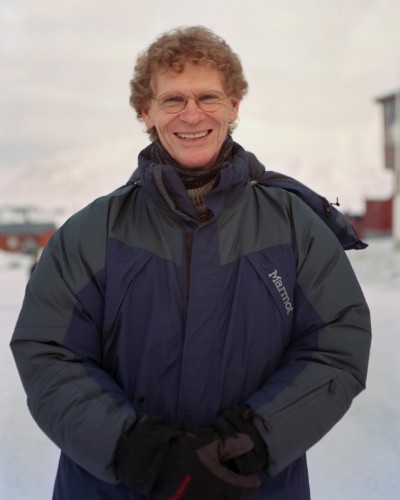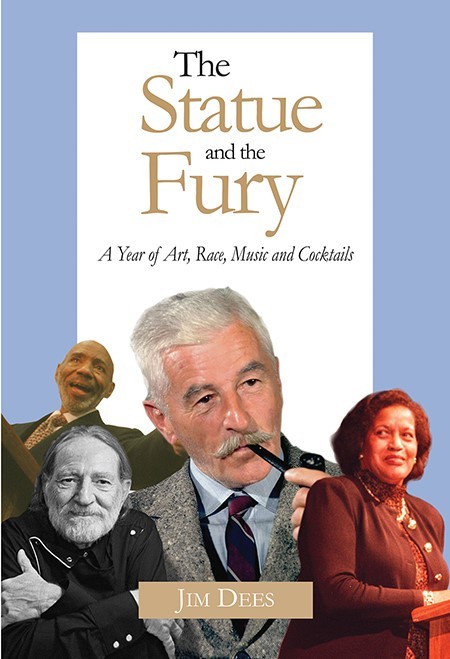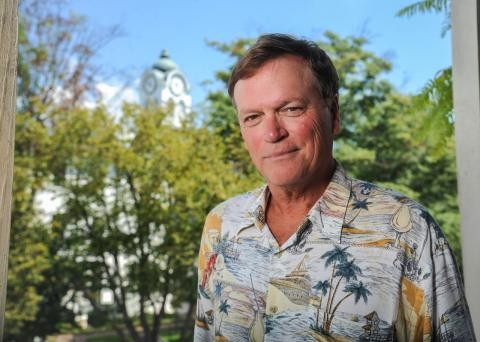Did you see that? That awful year that was 2016? The bad news, untimely deaths, and unexpected results left us sifting through the ashes of that dumpster fire for anything salvageable. What we found were these 20 young people who don’t have their eye on any calendar, but on their careers, communities, and challenges. They see only possibilities, and their optimism is infectious. Bring on the new year. They’re ready.

Mark Brimble
Mark Brimble
A scientist, comedian, and Englishman walk into a bar. Stop me if you’ve heard this one. The punch line is that they’re all the same person: Mark Brimble. And the bar is the taproom at Memphis Made Brewing Company, where Mark and partners, the Comma Comedians, started Drafts and Laughs, a monthly comedy show.
If the comedy doesn’t work out, he’s got this other thing to fall back on. As a PhD candidate at the University College London, he works with St. Jude researching gene therapy treatment for hemophilia.
That’s something we know nothing about, but we do understand drinking beer and laughing. Mark first became interested in comedy watching shows similar to NPR’s “Wait Wait … Don’t Tell Me!”
“It was almost ridiculously middle-class humor we grew up with,” he says. He decided to attempt stand-up to overcome his fear of speaking when presenting medical research. “The best thing I thought I could do was to throw myself into that environment.”
Mark found more than applause and work in Memphis, though. He also found a fiancée, Laurin Riggins, a nurse at Methodist Healthcare. Where Mark’s work will take him is anyone’s guess, but we’re all pulling for a stay in Memphis. And that’s no joke.

Kayla Rodriguez Graff
Kayla Rodriguez Graff
Kayla Rodriguez Graff is scared of two things: bees and dentists. Understandable, unless the company you’re building relies on bees and dentists. SweetBio developed a membrane made of medical-grade manuka honey and proteins used in oral surgery to fill in gaps after a tooth extraction, allowing the bones to regrow and gums to regenerate while preventing infection.
Kayla is COO of the company, and her brother, Isaac Rodriguez, is CEO. “He’s two years older than me, and, from a pretty young age, he was interested in biology and I was always interested in business,” she says. She majored in business at the University of Minnesota but says she took as many engineering classes as possible. Her love of computer science was evident when she moved to San Francisco. “I actually sold my car to learn how to code.”
With a background in entrepreneurship and corporate retail, it was natural to partner with Isaac when he brought the idea for SweetBio to her. They brought it to Memphis in 2015 for the ZeroTo510 medical device accelerator at Memphis Bioworks Foundation. Kayla has lived all over and says Memphis is a “hidden gem” in the medical device community.
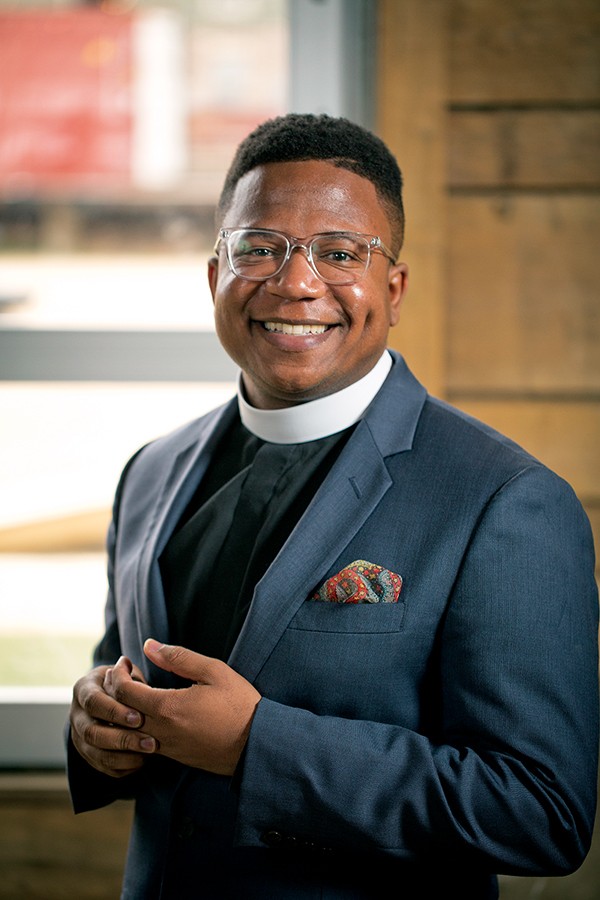
Broderick Greer
Broderick Greer
Broderick Greer has more than 25,000 followers on Twitter. Why? Because Broderick has something to say. The curate at Grace-St. Luke’s Episcopal Church first logged onto Twitter in 2009 to share with friends, but two years ago he visited Ferguson, Missouri, and his shift in focus changed to racial justice. “I’d always been passionate about LGBTQ advocacy and inclusion, being a gay person myself, so a lot of it is just personal interest,” he says.
Broderick grew up in a devout Missionary Baptist family in Fort Worth, Texas. The grandson of the church pianist spent every Sunday in church and every Thursday night at choir practice. “My parents, by the time I was 14, knew I wanted to be a minister when I grew up.”
GSL is his first job out of seminary, and his duties include coordinating ministry to people in their 20s and 30s through the Theology Live podcast, bringing in a local theologian, pastor, or thinker to discuss theology. He also puts on a monthly young-adult brunch, oversees chapel for school, and coordinates City of Soul, an Episcopal Service Corps program.
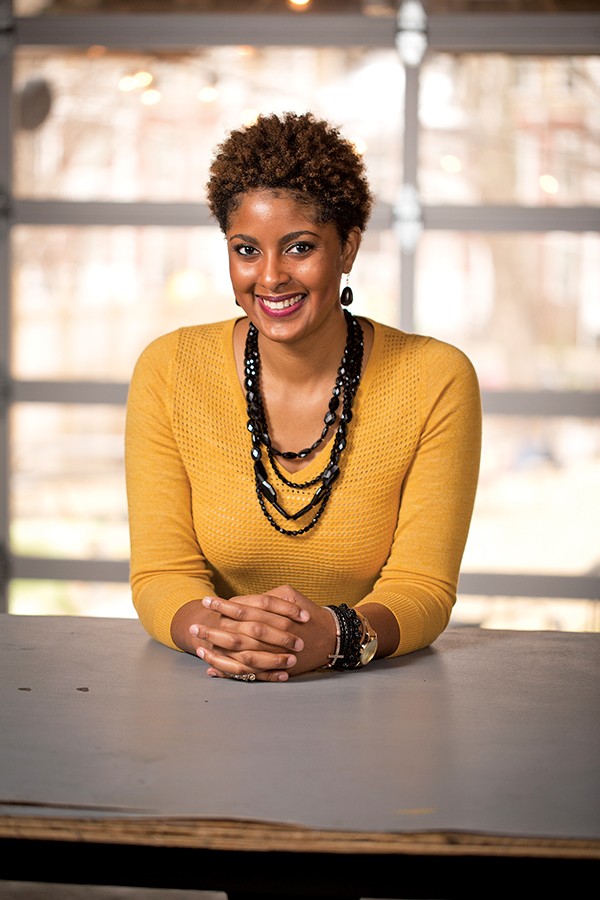
Sheleah Harris
Sheleah Harris
When we called Sheleah Harris, she was on break. A teacher for Bartlett High, it was the week after Christmas, and she wanted to just put her feet up. “If you hear noise in the background, it’s just some kids,” she said. They are nieces and nephews she’s watching for a few days. A chore? Not for this protector and advocate of children.
Sheleah comes from a family of educators and, though she resisted at first, entered the vocation with a passion, attending the University of Memphis to further her career. Once in the school system, she learned about homeless students while attending a training session, and went into action, founding the nonprofit Living Grace a year ago. She educated herself and learned what it was they needed most — school supplies, toiletries, monetary donations. They needed transportation, and Sheleah attended a MATA board meeting to plead her case. It did not fall on deaf ears. Now there are free passes for those students in need.
“These are things that we take for granted, and people really don’t think about this population of children,” she says. “I want to be an advocate for our homeless children.”

Larissa Redmond Thompson
Larissa Redmond Thompson
Larissa Redmond Thompson has taken a tragedy in her life — the death of her fiancé caused by someone texting and driving — and woven it into a life-saving tale that she takes to teenage drivers through her own nonprofit, Collegiate Life Investment Foundation (CLIF). “I started it just to bring awareness of the dangers of distracted driving throughout the state,” she says. Since 2012, CLIF has partnered with the University of Tennessee and the Collierville court system to grow into several programs providing teen traffic safety to high school students.
Her passion for involvement is seen in her day job as program associate with the Memphis Medical District Collaborative, which brings together the area’s institutions and stakeholders to make the district more livable, economically prosperous, clean, and safe. “It’s perfect for me,” she says. “I love Memphis. It’s my heart, so anything building the brand of Memphis, building specific areas up to their best potential was ideal.”
Larissa gives this advice for all: “You have to care about getting home safe, and about the person in the other car who has a wife or a child, about them getting home safe. If you treat driving as a caring activity, we’ll all be safer on the highways.”
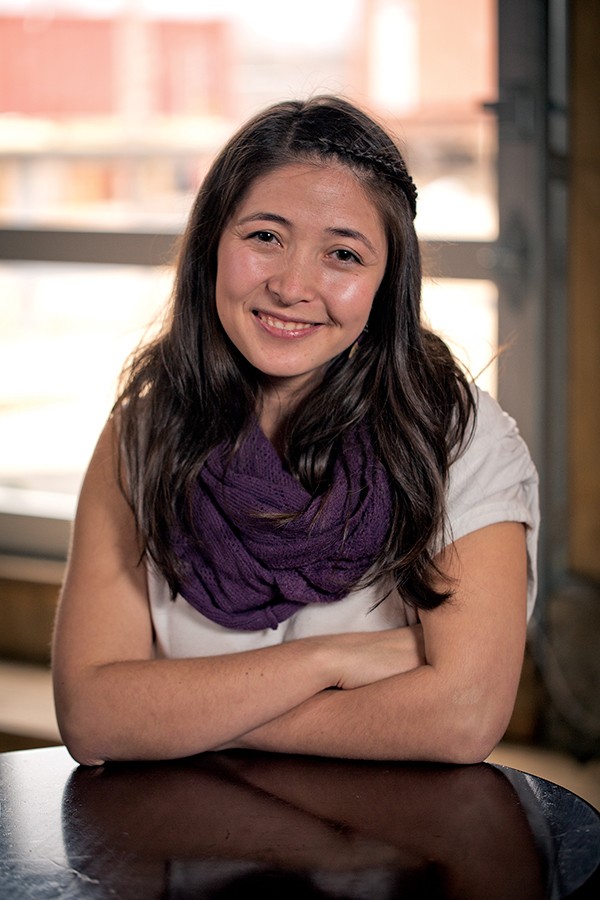
Mahal Burr
Mahal Burr
Mahal Burr grew up with a sense of social justice imparted by her mother. She even has photos of herself as a baby at rallies and protests. She carried that sensibility with her through high school at Ridgeway and Lausanne and into the BRIDGES program, where middle and high school students are empowered to reach across racial and socio-economic divides.
After graduating from Carleton College, she came back to Memphis and threw her passion into Stand for Children and Teach for America. Eventually, though, BRIDGES called her back, and today she is the community action coordinator. As such, she co-founded Incarcerated Youth Speaking Out for Change, runs the CHANGE program, and puts together community action for the 1,200 students who are part of the COLLABORATE program. “My job is to create opportunities for them to figure out how they want to be part of transforming their community,” she says. “It’s actually a lot of fun and allows a lot of creative energy.”
Last year, her sense of fairness led her to Standing Rock to join the protests against the Dakota Access Pipeline.Working with today’s youth on issues such as mentoring and police violence may be more important than ever over the coming four years or so, so I ask if she’s up for the challenge. “One-hundred percent.”
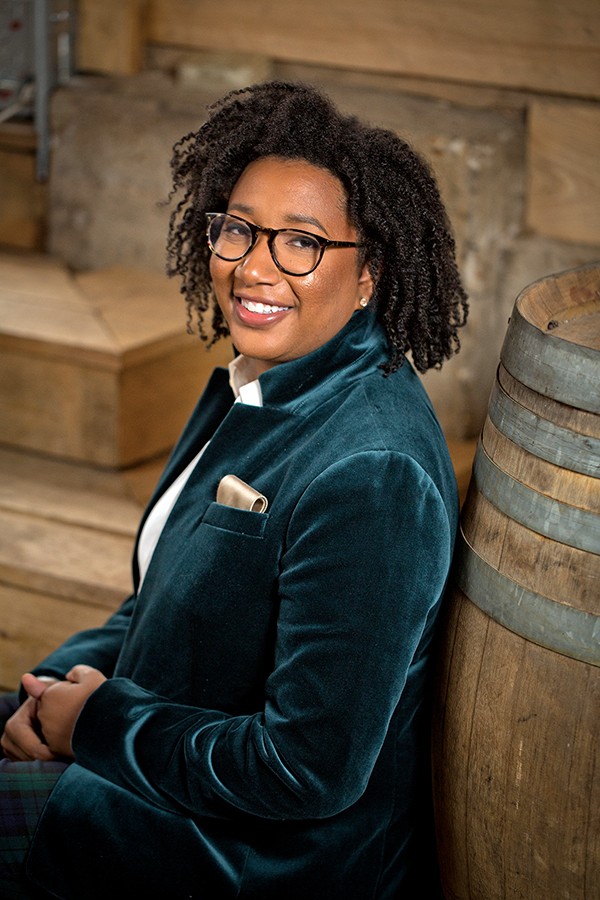
Whitney Hardy
Whitney Hardy
Whitney Hardy has been dubbed a “serial entrepreneur” by those who know her. This sobriquet couldn’t be more fitting. She remembers “always creating things” as a kid, and her first endeavor was a neighborhood soft drink stand. Not lemonade, on the advice of her mother, local entrepreneur Carolyn Hardy, who said lemonade wouldn’t sell. “I started learning about profit margins at 5 years old,” she laughs.
Whitney went on to UT-Knoxville for undergraduate and graduate degrees in accounting. From there it was to Atlanta, but the Bluff City siren kept calling. “Memphis was blowing up. I just kept thinking, ‘There’s so much stuff happening in Memphis right now, this is the place.'”
She came back in 2014 to work with her mother, but found she wasn’t seeing enough being done for the LGBTQ community, leading her to start Out901.com and be named temporary director of the Outflix Film Festival in 2016.”
There were other issues as well. “I love opera, I love ballet, and going to those things, I realized there weren’t people under 40 there,” she says. This led to the founding of Young Arts Patrons, a membership-based nonprofit designed to create a network of arts philanthropists and patrons under 40 through programs and events that engage and educate.
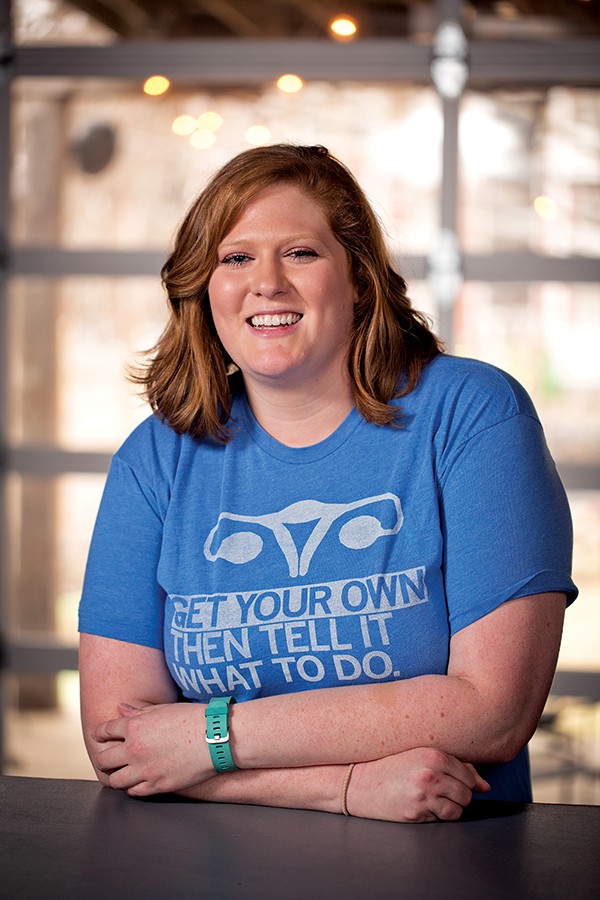
Grace Weil
Grace Weil
As the development director for Planned Parenthood Greater Memphis Region, Grace Weil’s job overseeing all fundraising may be exponentially more hectic — and more necessary — following November’s election. Then again, it may be somewhat easier as well. “Our donations easily quadrupled if not more after the election,” she says. “I think it’s unfortunate circumstances, but I’m always glad to see the outpouring of support.”
Not backing down goes back a long way with Grace. She was on her mother’s lap as a toddler at nonprofit board meetings in San Antonio, Texas, and got kicked out of calculus class her senior year of high school for arguing with her teacher about abortion.
When it came to college, she looked for one in a city with a “strong nonprofit network.” She found that at Rhodes College for a double major in International Studies and Political Science. Her interests ran toward public health issues, and, after graduation in 2011, she went on to work with Americorps VISTA and Hope House.
Planned Parenthood became home in 2015, and she and her boyfriend were some of the first tenants to move into an apartment at Crosstown Concourse.
And what advice would she give those worried about what the next four years might bring? A play right out of her own book: “Be public. The best thing you can do for Planned Parenthood or any social justice cause right now is to not be silent.”
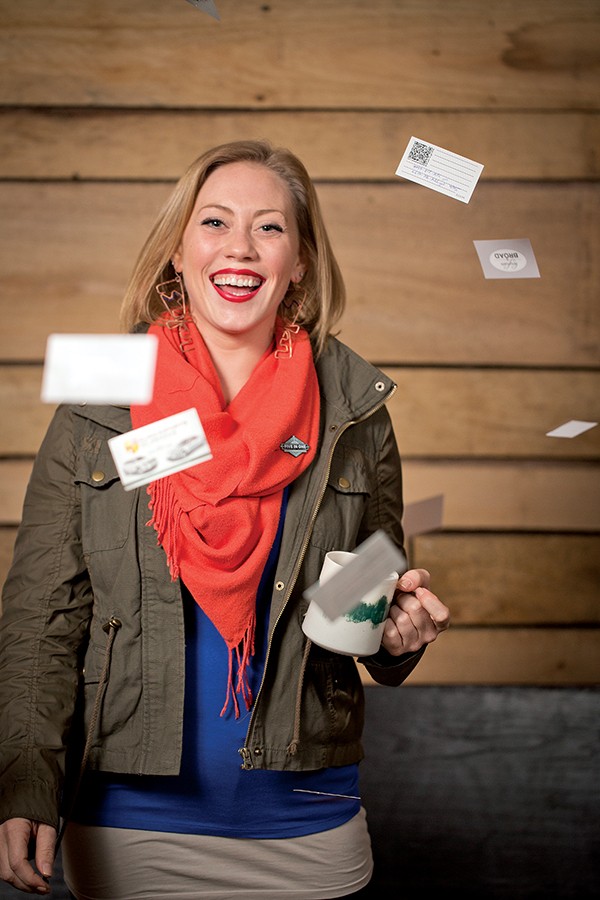
Katie McWeeney
Katie McWeeney
Her art explores human connection and the conscious and subconscious ways that we communicate, and as the first executive director of the Broad Avenue Arts District, it’s that connection, and the stories that go with it, that interests Katie McWeeney.
The 10-year-old arts district has existed solely as a volunteer endeavor until now, and Katie, hired last October, recently secured its 501(c)(3) nonprofit status. She has her work cut out for her as she harnesses the energy of the street and its relationship with the rest of the city.
“There’s going to be a social and visual alignment, there’s a lot of development coming up, a lot of movement happening,” she says. “The Hampline paving schedule is starting in April, that will extend all the way down Tillman to the Greenline, so we’ll get that connectivity.”
She moved to Memphis from Louisiana for her MFA in Interdisciplinary Studies at Memphis College of Art after studying architecture and fine art at Louisiana Tech. She worked with Crosstown in its early stages of development, before moving on to consult with for-profits and nonprofits, such as Indie Memphis.
“Broad Avenue is kind of this weird, untouched area that’s got so many interesting people and interesting stories.”
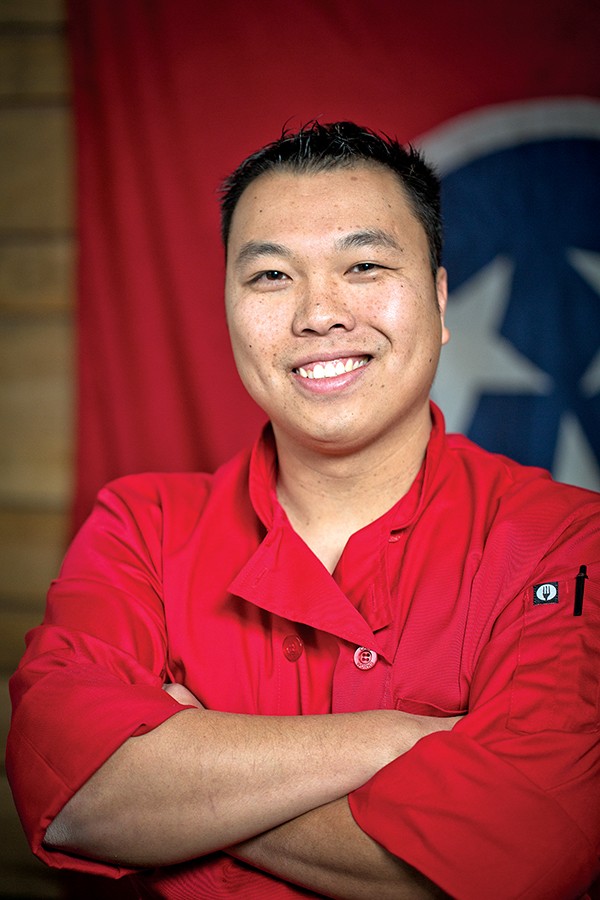
Jimmy Sinh
Jimmy Sinh
Odds are you’ve had a meal or two at the Sushi Jimmi food truck. If not, you’re doing mealtime wrong, especially if you haven’t had the Red Dragon or 901 Sushi Burrito. In the coming weeks, though, the need to pinpoint where owner Jimmy Sinh has parked his truck will be less pressing. The old Wendy’s at Poplar near the Union overpass, just west of the Library, will be home to a brick-and-mortar version.
It’s a dream come true for the chef, who moved with his parents to Memphis from Los Angeles in the third grade. While he can enumerate the positives of his adopted hometown over L.A., the West Coast is where his love of food was born. Specifically, the less expensive Hispanic and Vietnamese food bought from street vendors. His mother, too, was an inspiration. Jimmy is one of seven kids, so the woman was feeding a packed house of her own.
For Jimmy, food equals art, and you see it in his dishes and hear the passion for it in his voice. He’s an artist. He’s also the father of four children (ages 5 months to 9), so please, visit his restaurant before it’s time to buy a food RV to accommodate so many mouths.
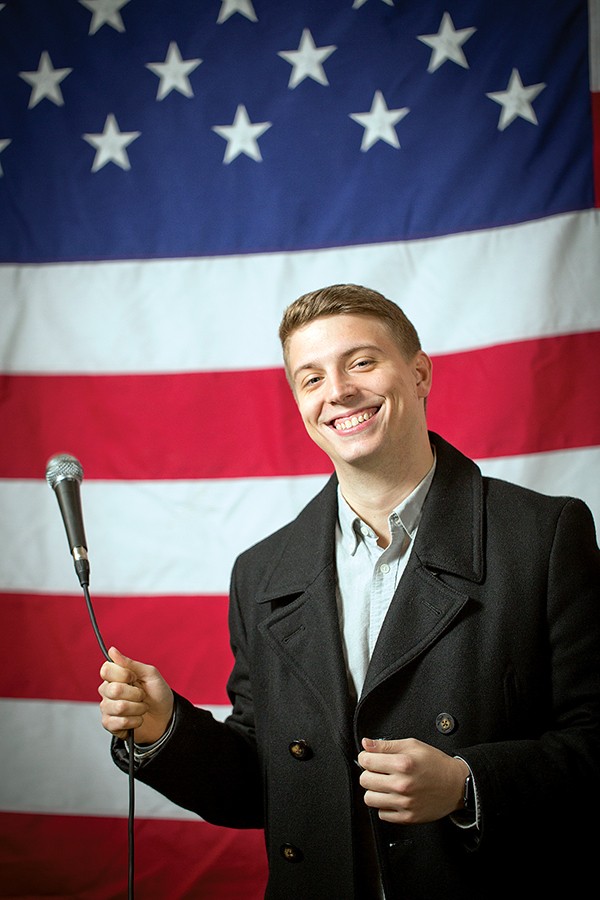
John Martin
John Martin
If John Martin could have written his own story, it’s just the sort of plot he may have imagined. In the beginning, he hoped to do just that, with dreams of being a novelist. “I just don’t have the attention span or the talent to write a 200-page book,” he admits. But he carried that love of the printed word through White Station High and into the journalism program at the University of Memphis. It was with him as sports editor for the U of M’s Daily Helmsman and as a freelancer covering recruiting for the sports department of The Commercial Appeal. Expertise on his subject matter saw him make appearances on Gary Parrish’s sports-talk show on the radio, and when CA columnist Geoff Calkins was offered a show on ESPN 92.9, he accepted with the caveat that Martin had to be his producer. “It jump-started my career in radio,” Martin says.
Now, John can be heard on “The Jason and John Show” at 92.9 daily from 11 a.m. to 2 p.m., partnering with former CA sports columnist, Jason Smith. “The most interesting parts of sports radio are not breaking down a game,” he says. “The thing I enjoy the most is applying something of my own experiences to something an athlete has done or said. It’s when sports intersects with society.”
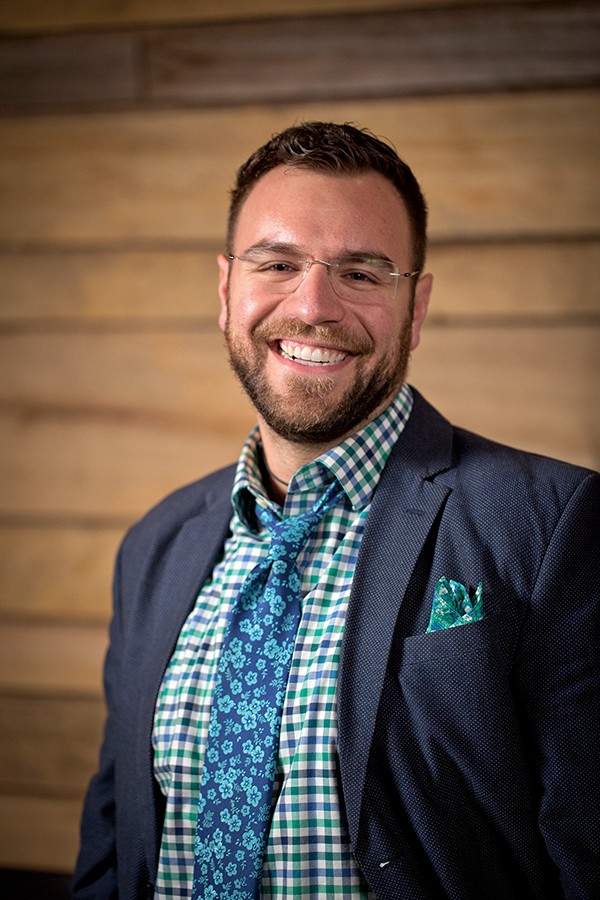
Spencer Blank
Spencer Blank
It was just a few years ago that the Memphis Symphony Orchestra was in financial trouble, heading toward an overture of insolvency. Today, happily, the MSO is strong and flourishing. So says director of operations Spencer Blank, who joined the organization in 2015, after the troubling period. “It was a real hard moment when I came in, not knowing what the future was,” he says. “It was sort of like a team of social activists that just said, ‘Well, here we go, there’s only one choice but to bring it every day.'”
Bring it, they have. Spencer is not just a fiscally minded general manager, but a pianist and opera singer who has toured the U.S. and Europe and performed off-Broadway. “It always looked so much more glamorous than it ever felt from the inside,” he says. He went back to school at the University of Texas-Austin for a master’s in arts administration and came to Memphis with a dedication and passion for both music and management.
Spencer is formidable at his desk, on stage, and in a scrum — when not planning for his team to perform a Rachmaninoff concerto, he hits the field with a different sort of team as a member of the Memphis Blues rugby club. “I’m the gentle, artistic one contemplating the meaning of life in the corner, so it’s even more hilarious.”
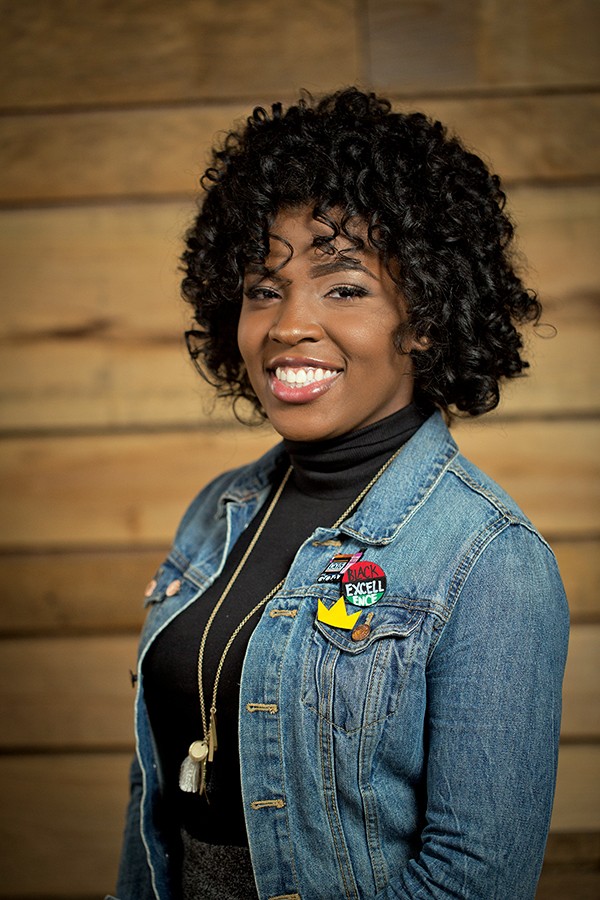
Michalyn Easter
Michalyn Easter
As a community advocate, Michalyn Easter puts her money where her mouth is. She began the grassroots nonprofit Our Grass Our Roots in North Memphis three years ago as a way to bring together the community development corporations and neighborhood groups already in place to ensure they have the best resources, representation, and advocacy. She also bought a home there when she returned from graduate school at Columbia.
Michalyn grew up in the area around Klondike, Chelsea, and North Watkins. As a child, she wanted to be a dentist, but her grandmother was a longtime teacher and her own passion for history led her on a route that went from North Memphis to Christian Brothers University and points north. She planned to stay in New York for five to eight years, but came back after three when her father passed away.
Michalyn teaches AP World History at Overton High School and in “looking for an avenue to help while touching as many people as possible,” she founded her nonprofit. “We took a step back and said, ‘What’s something we can do without reinventing things that have already been attempted or things that are already in process?”
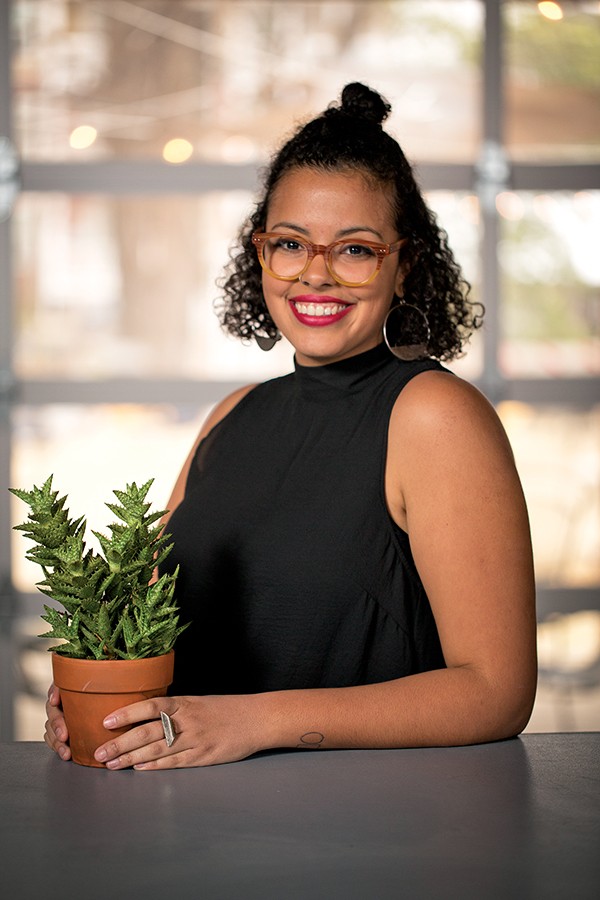
Rochelle Brahalla
Rochelle Brahalla
In case you think to question Rochelle Brahalla’s devotion to agriculture, know that she has founded a “plant focus group” of like-minded friends to meet in her home and discuss popular landscape plants. “We’ll do a mini-research project on the plants and explore plant perceptions, because I’m really interested in seeing how people perceive plants and how they come across in that human social behavior experience.”
While that’s in her off-time, her day job is as project manager for The Kitchen Community, the nationwide nonprofit founded by progressive entrepreneur Kimbal Musk to design, build, and sustain gardens in public schools.
Rochelle grew up digging in the dirt in upstate New York. She studied landscape architecture at Cornell University and followed a friend and AmeriCorps to the fertile land of the Delta in 2014. Here, she’s worked to design and construct 75 gardens with various school districts and hopes to get another 10 completed this year. “It’s a dream job for me,” she says. “I work in school communities and design productive landscapes.”
She calls Memphis “a great place to come of age. It just feels like a very personal place.”
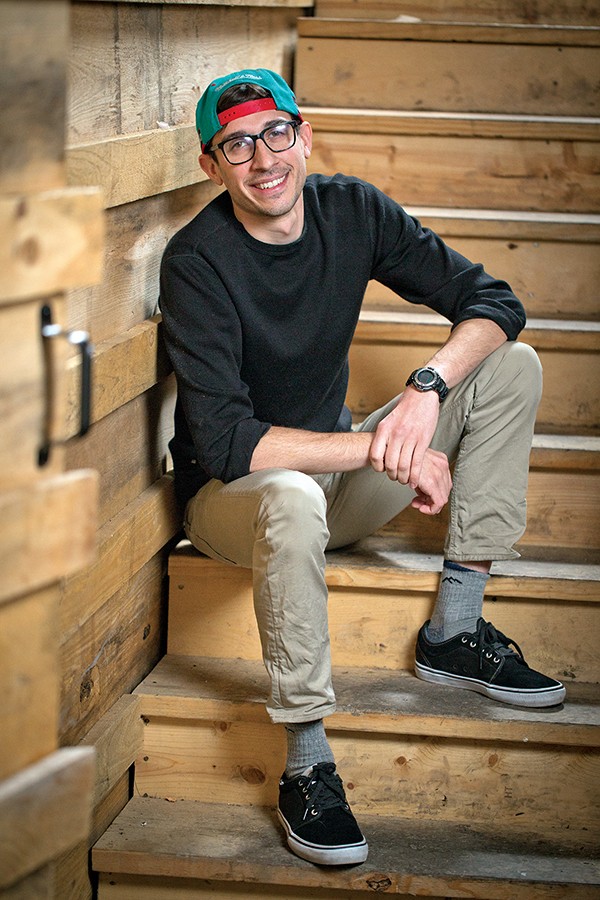
Ryan Carroll
Ryan Carroll
Many teachers work in classrooms strung with crepe paper and strewn with colored pencils. Ryan Carroll’s environment offers a far different perspective. As the lead instructor for HopeWorks, a nonprofit bringing personal career and development classes to underserved areas, Ryan’s classrooms are at 201 Poplar and the Penal Farm, where he prepares inmates for GED and High School Equivalency Tests. He also instructs incarcerated juveniles on the ACT test as a volunteer.
He’d originally considered a different career, but the numbers just didn’t work out. “I went to graduate school at the University of California-Santa Cruz for mathematical physics, and I moved back to Memphis to be with my family,” he says. “I was tired of doing pure math all by myself in a cubicle. I wanted to do something in the community.” He started volunteering at 201 Poplar and was surprised to find there was no GED program, so he started one.
His students really want to engage in learning, and, while the classes are a way to stay busy and maybe impress a judge, they also build confidence and give them momentum in the right direction. “It’s a point of pride that helps them get out of the negative environments a lot of them have to go home to.”

Tierinni Jackson
Tierinii Jackson
If, while listening to Tierinii Jackson sing, you’re transported by thoughts of Aretha Franklin or Stevie Wonder, that’s no coincidence. She points to these icons as inspiration. Likewise, if you’re transported to a Sunday morning church service, that is also no coincidence. She was brought up in the church with musician parents and attended choir practice regularly.
These days, she fronts the band Southern Avenue, recently signed to Concord Music, which owns the Stax record label. Yes, Stax. There may be no more sacred ground in Memphis than the corner of College and McLemore. Of being on the label, Tierinii says, “It seems like a responsibility and at the same time an honor, because I grew up with [that music].”
Southern Avenue’s new, self-titled album, recorded at Jim Dickinson’s Zebra Ranch and Music+Arts in Midtown, will drop on February 24th, and the band continues to tour at a hectic pace, no easy feat for this mother of two. Family is important, and she notes the help of her family with childcare, as well as with keeping the beat — sister, Tikyra, is the band’s drummer.
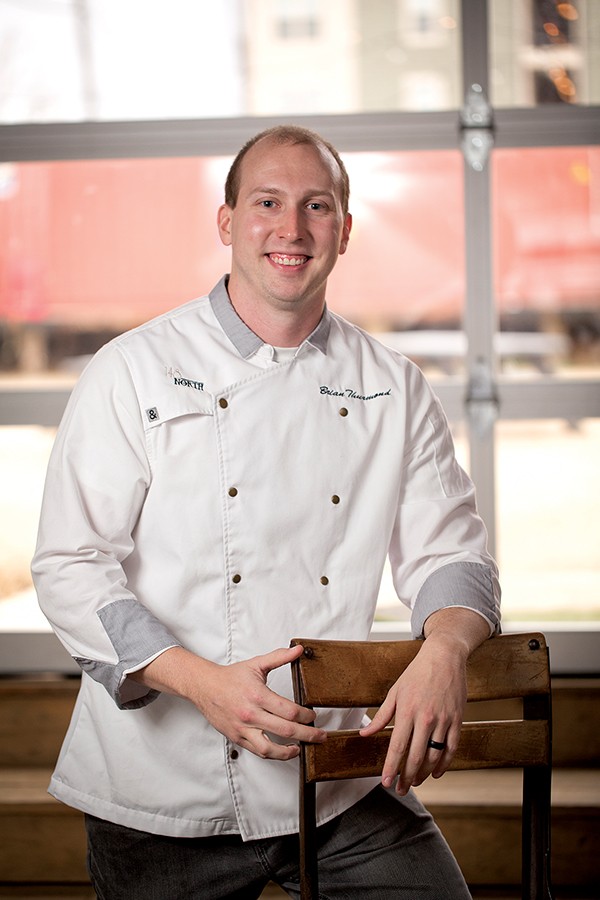
Brian Thurmond
Brian Thurmond
Brian Thurmond’s life on the line began in his mother’s kitchen and in front of the television with the Food Network. He went to the grocery store with her, and she showed him the basics, but he never thought of cooking as a career at that point.
His first job — as dishwasher for Restaurant Iris — opened a door. He worked his way up the line, then went to L’École Culinaire, and last fall opened his own restaurant — 148 North — in Collierville. “My wife was pregnant with our first child, and I decided it would be a good time to find out if I could do my own thing and find my own place and support my family by myself,” he says.
Kelly English, owner of Restaurant Iris, was supportive of Brian and helped him find the location. “Opening a restaurant is such a different animal that you can’t really prepare anybody for it,” Brian says. “He just had my back.”
Even with years of kitchen experience, training from a respected institution, and the blessing of one of the city’s most respected chefs, Brian still had the opening-day jitters. “It’s all on you. You can’t pass it off onto somebody else,” he says. “It’s your recipes, your train of thought, so it’s very stressful. At the end of the day, we’re trying to get to happy customers with full bellies.”
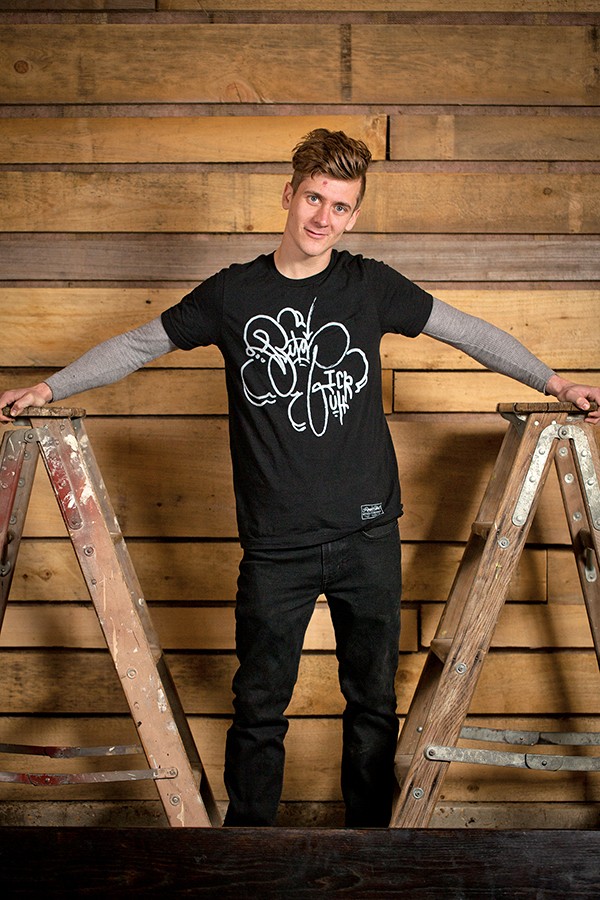
Brandon Marshall
Brandon Marshall
Brandon Marshall may be the only person on this list who’s been arrested twice and garnered a few citations for the very reason he’s on the list. Then again, graffiti has never been so accepted as it is now. City leaders have embraced the iconic murals sprouting up on barren walls all over the city. Likewise, the media looks at it with a different perspective, and Brandon cites a Memphis Flyer cover story, some years back, for helping to lead that charge. And he’ll take some of the recognition as well, thank you very much. “I like to think I had a part in bringing the murals to Memphis,” he says. “I’ve done about 30 commissioned works of all different styles in the last five or so years.” Brian’s also become an advocate for graffiti art and has curated several festivals surrounding the art form.
Though he’s never taken an official painting class, his work can be seen all over town. Some of his favorites can be seen in the alley at the Rendezvous and on the walls of Halle Stadium. He’s responsible for a Marc Gasol portrait on Airways, MLK at Aspire Hanley Elementary School, and the iconic I (heart) Memphis mural in Cooper-Young, among many others.
Another passion for Brandon is music. He organized a hip-hop festival held at the Brooks Museum of Art last year and hopes to do the same in 2017.
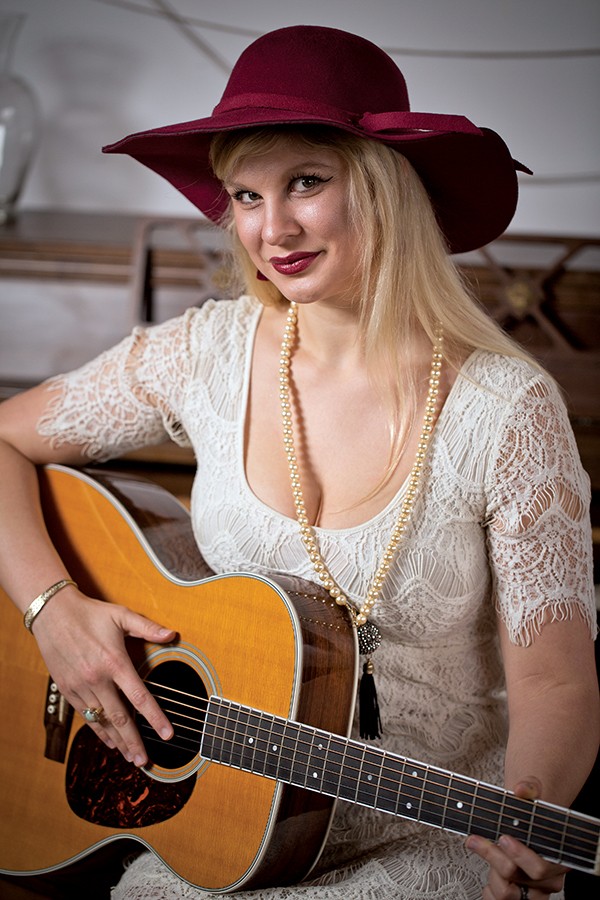
Faith Evans Ruch
Faith Evans Ruch
Her music was birthed from a longtime love of Broadway musicals and writing poetry. In 2011, Faith Evans Ruch began backing the words with her own guitar, and she had a career in the making. Well, a second career.
When Faith isn’t crooning to a crowd, she’s a nurse in labor and delivery at Regional One Health, bringing new potential music lovers into the world. “Growing up, I knew that I loved taking care of people,” she says. “I’ve always been very invested in the care of others. I’m a nurturer by nature.”
Music and nursing are both rewarding and stressful in their own ways, but Faith’s found a balance that caters to her emotional, caregiver, and personal needs. “I look at my nursing job as where I get to go take care of others, and when I come home and I play my guitar, that’s when I take care of myself.”
And we’re lucky to be a part of at least one of those careers. Faith plays around town and recorded her first album, 1835 Madison, in 2013. Her second will be released this spring and is being recorded at famed Royal Studios, home of Al Green and Ann Peebles.

Madison Harrison
Madison Harrison
If Madison Harrison had a car, her start-up company, MadAir Decks, probably wouldn’t exist. Before the skateboard was art, it was simple transportation. “For about a year, I didn’t have a car, so I started skating everywhere — to the grocery store, to Walgreen’s, to work,” she says. At the same time, she was coming into contact with more and more artists from Memphis College of Art at Babalu, where she works. Wanting to showcase their talent, and with the ember of entrepreneurism burning in her soul, she and partners Amber George, Jake Barrett, and Alya Bandealy founded MadAir.
Each skate deck is hand-painted according to the artist’s style and protected with sealant. Are they meant to be ridden or hung on the wall? “Buyer’s choice,” Madison says. She tells the artists that the board has to be rideable, but MadAir also sells mounting fixtures to hang them like a Picasso.
Distribution is done solely through madairdecks-memphis.com right now, but she has her sights set on a brick-and-mortar store in the next couple of years. In the meantime, Madison is marketing and showcasing the artwork through a series of events held at Memphis Slim House.
The Memphis Flyer would like to thank Loflin Yard for the use of their lovely space for our 20<30 photo shoot.
